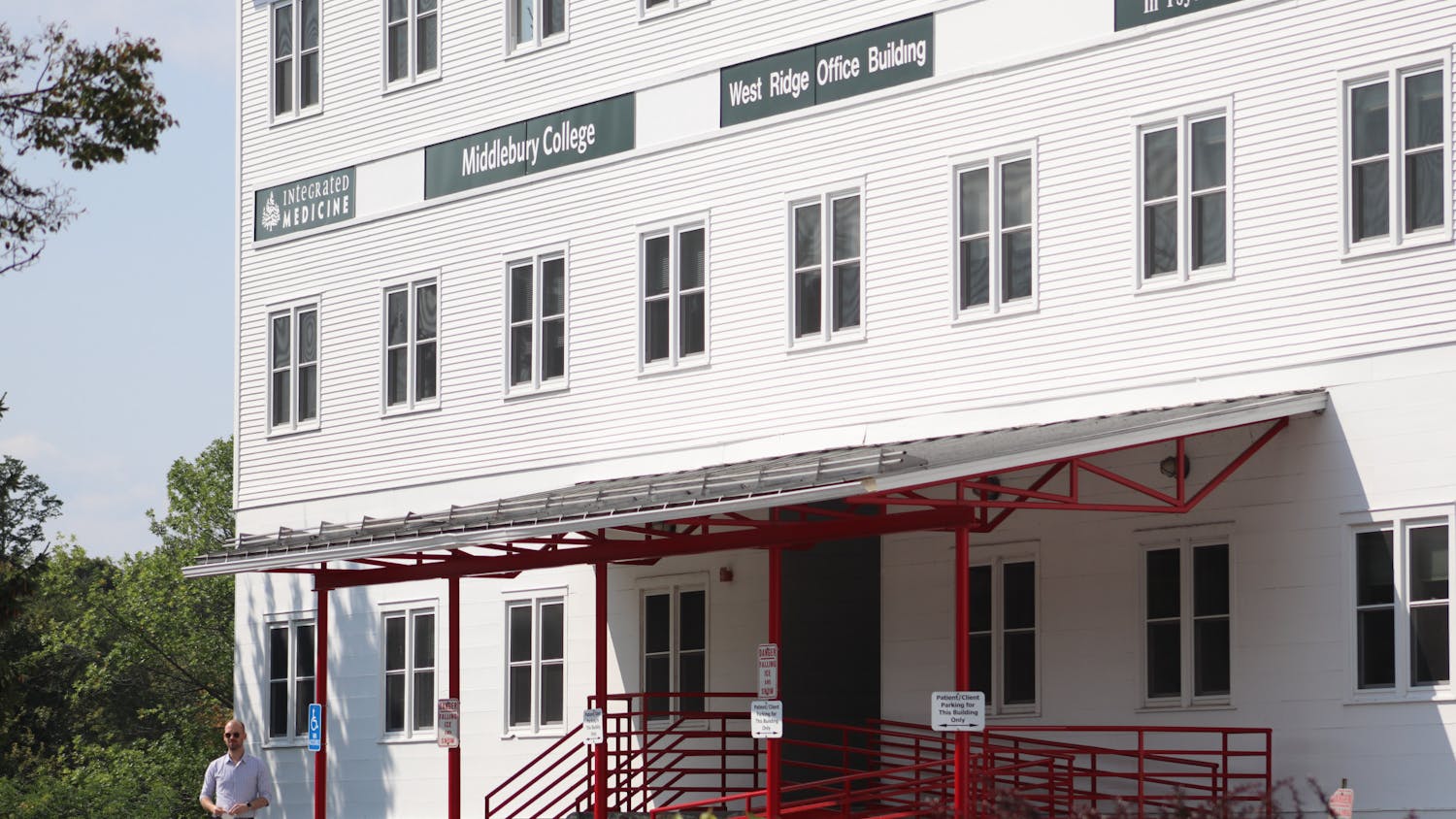The town of Ripton has decided to remain in the Addison Central School District (ACSD) after a vote at the end of September. After a January 2021 vote to withdraw followed by a year-and-a-half long struggle for the town to establish an independent school district, Ripton residents have now voted to remain in the district that also includes Bridport, Cornwall, Middlebury, Salisbury, Shoreham and Weybridge.
Ripton’s relationship to ACSD began in 2015, when the Vermont Legislature passed Act 46, a law that placed the many independent districts with their own school boards into centralized districts.
According to Molly Witters ’01, the vice chair of the Ripton School District Board and the parent of a third grader at Ripton elementary school, the goal of Act 46 was to consolidate schools to improve organizational efficiency and better support schools by allowing them to share resources.
While the language of the law stated that it was not about school closure, a consequence is that some schools that have always been supported by their local communities, are no longer supported in the same way by the bigger districts. This has led to school closures, changes and depopulations. “The law was very contentious,” Witters told The Campus by phone.
For Ripton, this meant a district plan that included the closure of their elementary school, which VTDigger reported enrolls about 45 students.
Ripton was one of the first schools to voluntarily consolidate, but Witters said consolidation eventually would not have been a choice. According to Witters, the Vermont Department of Education offered funding to help incentivize small independent districts to consolidate quickly and told them that if they did not consolidate, they might later be required to join a larger district anyway. Consolidation meant that schools with smaller enrollment that might once have been part of a town-wide district could form larger districts spanning multiple towns. In ACSD’s case, the district is composed of nine schools across seven towns, including three in the town of Middlebury. However, consolidation remains an ongoing issue. Not all schools in the state have been consolidated into unified districts.
Following Ripton’s consolidation, an 800-signature petition was presented to ACSD on behalf of Ripton, asking for changes to the school’s charter.
“The charter change we have hoped for would give the town authority to confirm, via majority town vote, any decision around closure that the [district] board makes” Witters said.
Steve Cash, chair of the Ripton School Board, elaborated on this decision. The main goal of the proposed change was to make sure the district-wide school board was in step with the town. “There were two interests at the time. One was to change how voting was done, and make that more relevant on a town by town basis,” Cash told The Campus. “Another change we had petitioned for was to give the town the final vote on a school closure. That’s something that small towns, having had their own schools for years and years, have always had that vote. We felt that’s important.”
ACSD did not make the charter change Ripton had hoped for. “The board doesn’t want to have its hands tied financially by keeping open a very small school. They want to keep closing a school… as a possible tool,” Witters said. “This doesn’t come from a place of malice, but our town always found a way to save our school [when it was independent].”
In January 2021, Ripton voted to leave ACSD due to concerns about the rejection of the petition and forced closure. This vote led to the creation of the Ripton School Board, under which Ripton would have functioned independently beginning in July 2023.
One big issue was the question whether Ripton could join another supervisory union. The Ripton School Board was interested in joining the White River Supervisory Union, based in the White River Valley, which combines independent schools and provides them with special education services, Human Resources and busing. The Vermont Board of Education rejected this request. Instead, they designated Ripton to be its own supervisory district, meaning that it would have to coordinate its own special education, Human Resources, and busing programs. Typical self-supervising schools have 900 to 1,000 students, while Ripton currently has around 60 students.
This designation of Ripton as its own supervisory district proved challenging. According to Cash, Ripton submitted a status report to the Vermont Board of Education this past summer, and the board voted that there was an overwhelming risk Ripton would not be able to function as its own supervisor.
After this vote, per Act 176, there was an option for Ripton residents to vote on whether to re-join ACSD. On September 29, the town voted to once again be a part of ACSD.
Cash and Witters both described the enormous amount of work that went into a process that eventually resulted in Ripton deciding to stay in the district.
“I’ve been to 40 school board meetings,” Cash said. “That does not count my ten appearances before the State Board of Education… I don’t think this process has been successful, from their vantage point or ours.”
Witters echoed this sentiment. “It felt like we were in… a big circle of hard roadblocks that we went through for 19 months, and we kind of came back to the same place where we left,” she said. But Witters said she does not regret the original decision to leave. “Our school would have been closed already if we hadn’t done that,” she said.
Fears remain that the Ripton elementary school may be forced to close. Cash mentioned talks with ACSD about the idea of Ripton rejoining the district, with protections against the closure of its elementary school in place, but the Ripton Board decided that would not be fair.
“We had some conversations in the School Board, and we said absolutely not. For the other small towns in our district, it’s not fair. [It] just sets a precedent that really doesn't set up good relationships,” Cash said.
Finally, an ad-hoc committee has been formed within ACSD on school closure. This subcommittee analyzes all the articles of agreement about school closure from across the state. There is a possibility the committee will decide to guarantee small schools in the district a legal say in advance of any closure.
“Ripton is still advocating for this change,” Witters said.
“Our argument is that it’s not that crazy what we’re asking for,” Witters said. “More than 50% of the boards across the state function like that.” The ad-hoc committee will bring their findings to the full ACSD board at the end of the month.
Now that Ripton has voted to rejoin ACSD, the Ripton School Board will cease to exist. Ripton will be represented by one member on the ACSD board who previously served on the Ripton Board.
Witters reflected on her experience and her hopes for the future. “I want this to be a productive and not a destructive process,” she said. “It’s not like anyone’s done anything wrong, it’s just that everyone has different opinions on how to keep a healthy democracy.”
The students at the Ripton school seem largely unaffected by the legislative happenings. Of course, if their school were to close that would present a big change. For now, however, Witters said her own daughter comes home from school happy, unaffected by the turmoil. “On the whole, the school has gone through some growing pains after consolidation… This is part of why I believe in staying with ACSD: to not go through those growing changes elsewhere, but to make those changes a productive thing,” she said.
Cash said his larger goal is for an institutional mechanism to navigate situations of school closure within Vermont.
“If a small school has a concern, like their district charter, but they can’t petition to have it changed, what is the process? It’s not withdrawal. The question we started out with I don’t really think has been answered,” he said.

Julia Pepper '24 (she/her) is the Senior Local Editor.
She previously served as a Local Editor. She is a Psychology major and French minor. This past spring she studied in Paris. She spent the summer interning at home in New York City, putting her journalistic cold calling skills to use at her internship doing outreach with senior citizens. In her free time she enjoys reading and petting cats.




